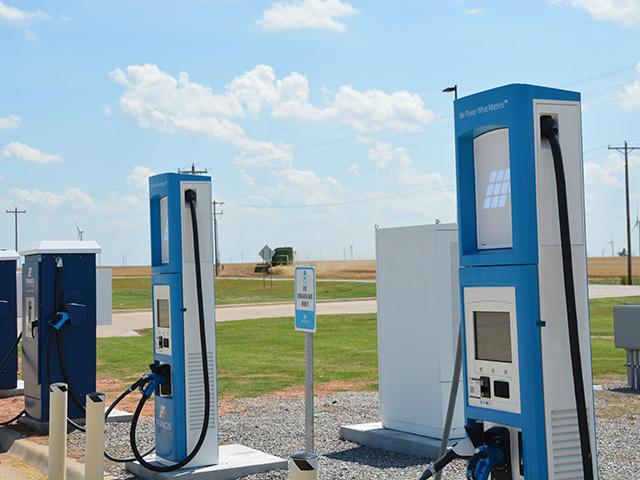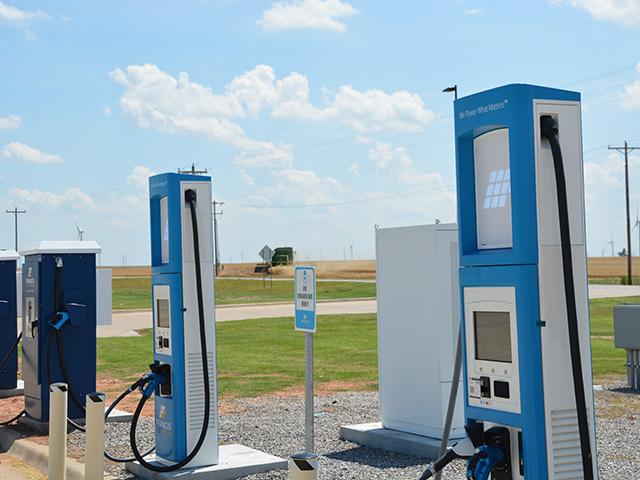Ag Policy Blog
House Set to Debate Budget Bill as Black Farm Groups Complain About Debt Provisions
After a hearing lasting more than five hours Wednesday, the House Rules Committee passed a rule for debate on the Inflation Reduction Act, also known as the reconciliation bill.
The debate on the rule and the bill will begin at 9 a.m. Friday by the full House of Representatives, House Rules Committee Chairman Jim McGovern, D-Mass. The Rules Committee held a series of votes along party lines Wednesday, rejecting Republican amendments that would have required sending the bill back to the Senate and a final vote to establish the rule.
The debate on the Inflation Reduction Act (IRA) will last three hours, according to the rule.
The massive legislation contains $40 billion for agricultural conservation, credit, renewable energy and forestry programs.
Although many farm leaders have called for additional funds for agriculture prior to the 2023 farm bill debate, Rep. Michelle Fischbach, R-Minn., said at the hearing that farmers she has met are not asking for the money and that she is not sure USDA "can use the money" because the department is short-staffed.
Fischbach also noted that there have not been any hearings or debate in the House Agriculture Committee on the additional funds or input from Republican House members.
Fischbach also said the additional funds will complicate the next farm bill.
CRS Breakdown of Ag Provisions
The Congressional Research Service on Wednesday also issued a detailed description of the agriculture provisions in the Inflation Reduction Act, also known as the reconciliation bill.
P[L1] D[0x0] M[300x250] OOP[F] ADUNIT[] T[]
CRS divided the provisions into sections on agricultural conservation, agricultural credit for distressed borrowers, renewable energy and forestry. A link to the CRS report is below.
Black Farm Leaders Upset by Changes in the Bill to Address Aid Problems.
Leaders of the Federation of Southern Cooperatives/Land Assistance Fund and the National Black Farmers Association have expressed dissatisfaction with the provisions in the Inflation Reduction Act (IRA) to resolve legal problems that have occurred with a program of aid to Black farmers that was included in the American Rescue Plan Act (ARPA).
The Federation of Southern Cooperatives/Land Assistance Fund noted in a news release Wednesday that Section 1005 of ARPA "promised 17,000 Americans, 3,100 of whom were Black, emergency debt relief, to address the unique governmental interest in mitigating the disproportionate debt burden facing America's farmers and ranchers of color resulting from long-standing, race-based discrimination in agricultural lending practices especially against Black farmers."
White farmers challenged the constitutionality of the provision with multiple federal lawsuits, which "resulted in the indefinite delay in the implementation of the government's narrowly tailored solution to the unfair burden of racial discrimination that not even a global pandemic could slow or halt," the federation and fund said.
The IRA repeals Section 1005, which the federation and fund said amounts to "congressionally conceding defeat on one narrowly tailored solution to the government's purported interest in reducing the economic harms of race-based discrimination in agricultural lending and pandemic relief. Instead, this promise has been repealed and replaced with two programs that again ask Black farmers to trust in promises that have heretofore remained untrustworthy."
The federation and fund explained, "As alternatives to the ARPA debt relief program, the IRA appropriates $3.1B for loan modifications for 'distressed' direct and guaranteed borrowers 'whose agricultural operations are at financial risk' and $2.2B for 'discrimination financial assistance' to NGOS to provide financial assistance of up to $500K for 'farmers, ranchers or forest landowners determined to have experienced discrimination prior to January 1, 2021.'
Unfortunately, the Senate does not establish priority in either program for the 17,000 farmers and ranchers who received letters from their government promising debt relief. Thus, despite being guaranteed that no adverse action would result from nonpayment of loans promised to be forgiven, these borrowers remain imminently vulnerable to foreclosure."
Cornelius Blanding, executive director of the federation and the fund, commented, "Though disappointed, that we may never know how the court would have interpreted debt relief under Section 1005 and the constitutionality of targeted race-based programs designed to achieve racial equity we must continue the federation's 55-year legacy which we will commemorate at our annual meeting next week and ensure the implementation of the programs under the IRA will not leave Black farmers out."
John Boyd, president of the National Black Farmers Association, called the change in the law "a broken promise" and said that "President Biden and his administration must honor their commitment to Native American, Black and other farmers who have been the victims of discrimination by the USDA. In particular, the Biden administration must move swiftly to enact a moratorium on the foreclosure of direct and guaranteed USDA Farm Service Agency (FSA) loans, move swiftly to provide the promised 120% debt relief of Native American farmers and other small farmers of color, and must send a clear signal to private lenders that USDA will protect guaranteed loans from farm foreclosures."
- Text of Senate amendment to H.R. 5376: Inflation Reduction Act of 2022 https://www.congress.gov/…
-CRS Insight on Ag provisions of the Inflation Reduction Act https://crsreports.congress.gov/…
Jerry Hagstrom can be reached at jhagstrom@nationaljournal.com
Follow him on Twitter @hagstromreport
(c) Copyright 2022 DTN, LLC. All rights reserved.





Comments
To comment, please Log In or Join our Community .